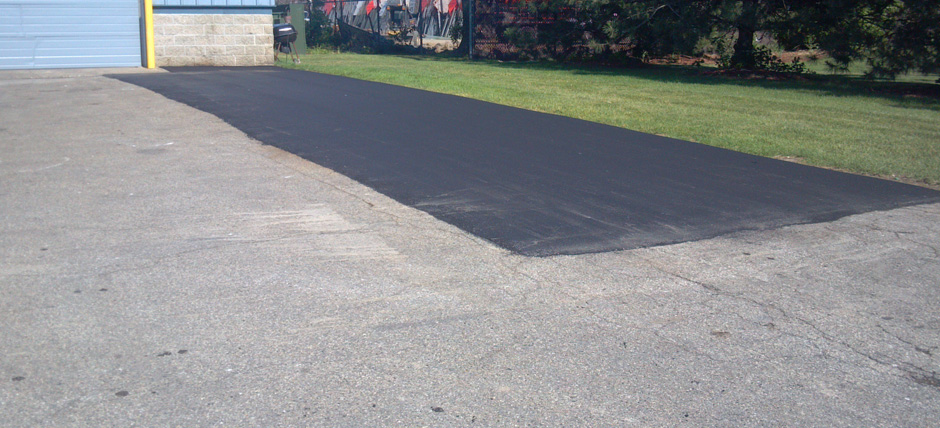Why Seal Your Asphalt Driveway?
Sealing an asphalt driveway increases the service life of the driveway and makes the driveway appear more attractive. Here are some things to know about sealing an asphalt driveway. Why does an asphalt driveway have to be sealed? When exposed to heat, sunlight, water, salt, wear and tear and other extreme weather conditions, asphalt drives tend to fail and are damaged.
Sealing an asphalt driveway increases the service life of the driveway and makes the driveway appear more attractive. Here are some things to know about sealing an asphalt driveway.
Why does an asphalt driveway have to be sealed?
When exposed to heat, sunlight, water, salt, wear and tear and other extreme weather conditions, asphalt drives tend to fail and are damaged. If the cracks in the driveway are left untreated, the life of the driveway will be greatly reduced. As water builds up in these crevices, the base of the driveway weakens, creating potholes. In places with cold weather, the water freezes in the cracks and damages the driveway. In warm weather, cracks filled with water to trigger the growth of grass around the edges. Asphalt driveways are also damaged by oxidation from the oxygen present in the air. Sealing an asphalt driveway protects the driveway from sunlight, UV rays, water, air, cold, and other contaminants.
What is the best time to close a paved driveway?
When a new asphalt driveway is being installed, it’s not that difficult. The light oils in the asphalt surface to evaporate and make the driveway harder. It can take about 6 to 9 months for the driveway to fully harden. It is therefore recommended that asphalt sealing is not applied to the new driveway for at least 6 to 9 months after the driveway has been installed. This is because the sealer blocks the evaporation process and thus allows the driveway to remain soft.
How often should an asphalt driveway be sealed?
Asphalt driveways must be sealed once every 3 to 5 years. This in turn depends on weather conditions and on wear and tear. If not regularly sealed, asphalt driveways will degrade and waiting too long to seal an asphalt driveway will reduce the life of the driveway.
What materials are used in asphalt vehicles?
Asphalt pavement seals are commonly made from either asphalt refined coal tar, or a mixture of asphalt and refined coal tar. The refined coal tar sealers create a barrier that blocks the destructive elements in weather, air, sunlight, oils, etc. The asphalt sealers are also widely used and effective in protecting the driveways from harmful elements. One of the drawbacks to using asphalt sealers is surface fading from exposure to UV rays, dust, oxygen, salts, and petrochemicals from the sun. Asphalt sealers are odorless, skin-safe, and easy to use.
How To Apply Asphalt Driveway Sealer?
The best time to apply asphalt sealer is on a cloudy day with no rain. When the sealant is used on a sunny day, it becomes difficult to spread the sealant evenly because the sealant dries quickly. If the sealer is being applied on a sunny day, it is better to dampen the driveway with water before applying the sealer.
Stir the contents of the sealant and start by brushing the sealant onto the edges of the driveway. Then pour the sealer on the driveway. Spread the sealer slowly and evenly with the squeegee. Rollers or brushes cannot be used to apply asphalt sealer.
How long does the sealer have to dry?
It can take about 24 hours for the sealer to dry completely. The movement of vehicles must be blocked until the driveway is completely dry.
Asphalt driveways are known for their longevity, and if properly cared for, they can definitely live up to expectations.
Get in touch with a professional
With our qualified professionals, you are guaranteed to obtain a final result of the highest quality and lasting. Our work is always carried out with meticulousness and respect at Skye Asphalt. We are constantly rewarded for the quality offered to our customers.
Contact us now: (469) 251-5892
Continue reading on next article “Why Is It Better To Dismantle The Concrete Pavement Before Asphalt Paving?“

